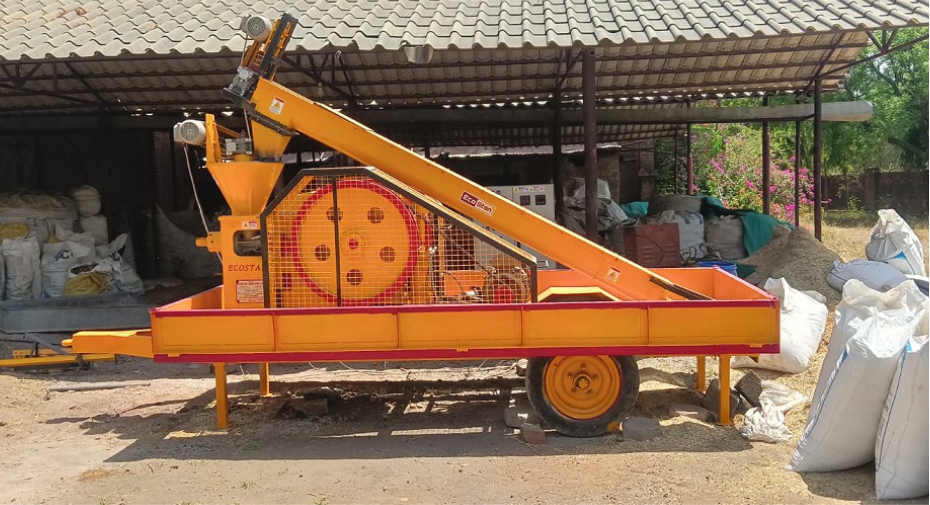Developing a Mobile Briquetting Machine
Climate
change and the continued rise in greenhouse gas emissions from energy
production make innovation in the energy sector more urgent than ever. Most
developing countries are highly dependent on biomass for their energy needs
for cooking and heating, given that only a fraction of the population is
connected to the electricity grid.
Currently, in households in India, this demand is almost entirely met by firewood and charcoal, which are not sustainably produced; hence this practice leads to rapid deforestation. Deforestation, which has been increasing every year, is an important reason for frequent floods globally. The industry, on the other hand, meets its energy needs for processing heat from the same wood fuel sources or from coal, thus contributing to the release of fossil-bonded CO2.
Hundreds of thousands of tonnes of agricultural waste, such as pigeon peas residues, soybean residues, rice husks, maize stalks, and groundnut shells, are burnt every year on farms and around places where agricultural products are processed. This is mainly due to the fact that transporting it to potential end-users is not worthwhile since the density of the waste is too low and transporting large volumes is too expensive. At the same time, the in-field combustion of these materials is hazardous causing high levels of smoke pollution from fine particulate matter (PM) similar to the issue in northern India.

The Mobile Briquetting System envisaged to be developed and tested offers a sustainable, viable, safe, and replicable solution for providing environment-friendly energy in commercial setups.
The Mobile Briquetting System takes advantage of the large quantities of agricultural waste generated that are not being adequately utilised. Densifying residues close to their site of origin in the form of briquettes allows for easy transport, handling, storage, and reduced transport costs. The briquettes can be used as fuel in the usual household appliances without requiring any alteration. They are also suitable for industrial processes. Depending on their usage, minor modifications in the machinery may be necessary.
For general public, this value utilisation of agricultural and forest waste
materials is advantageous. Instead of the current practice of uncontrolled
burning on-site, which leads to environmental pollution, the waste
materialsí use as (cooking) fuel with controlled clean combustion could
clean up the air and provide urgently required fuel without affecting soil
fertility.
Debaprasad Das
ddas@devalt.org